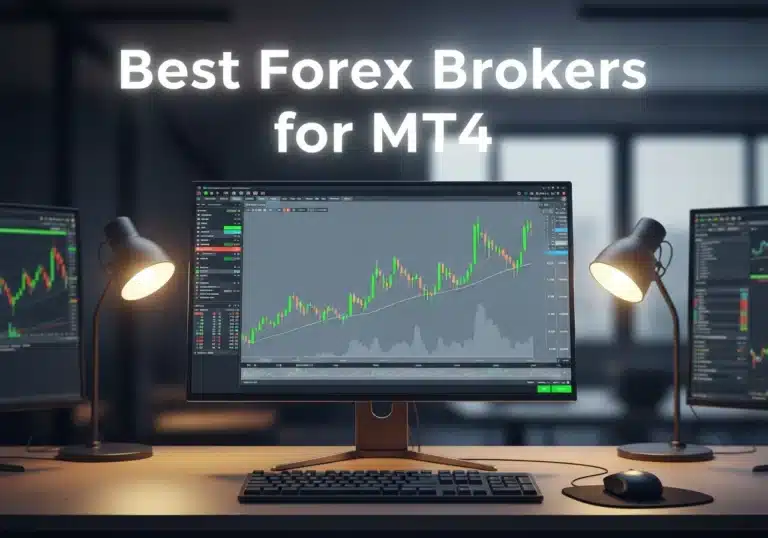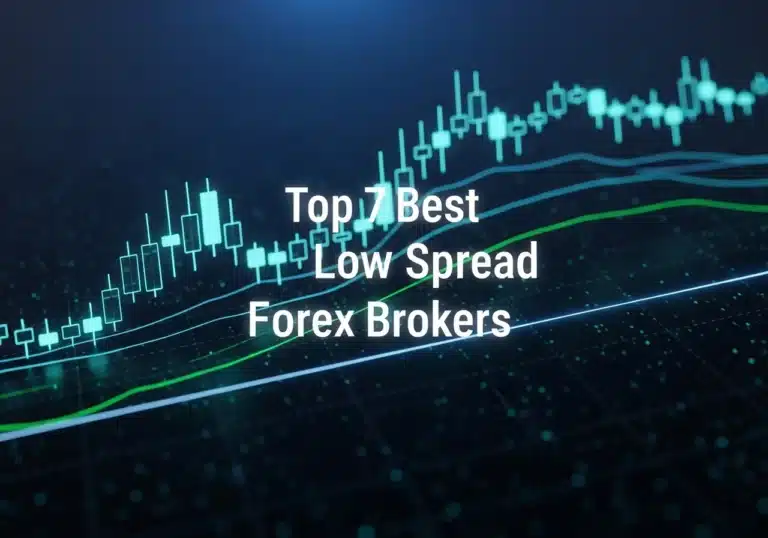Have you ever achieved a trading goal, perhaps executing a planned trade using your preferred forex trading broker, only to feel it was down to luck? Do you carry a quiet fear that sooner or later, people will discover you aren’t as competent as they think? This ongoing feeling of being intellectually fake despite real accomplishments is the essence of imposter syndrome in trading. It’s a surprisingly frequent issue and can significantly hold you back, causing you to doubt sound judgments or feel frozen by anxiety.
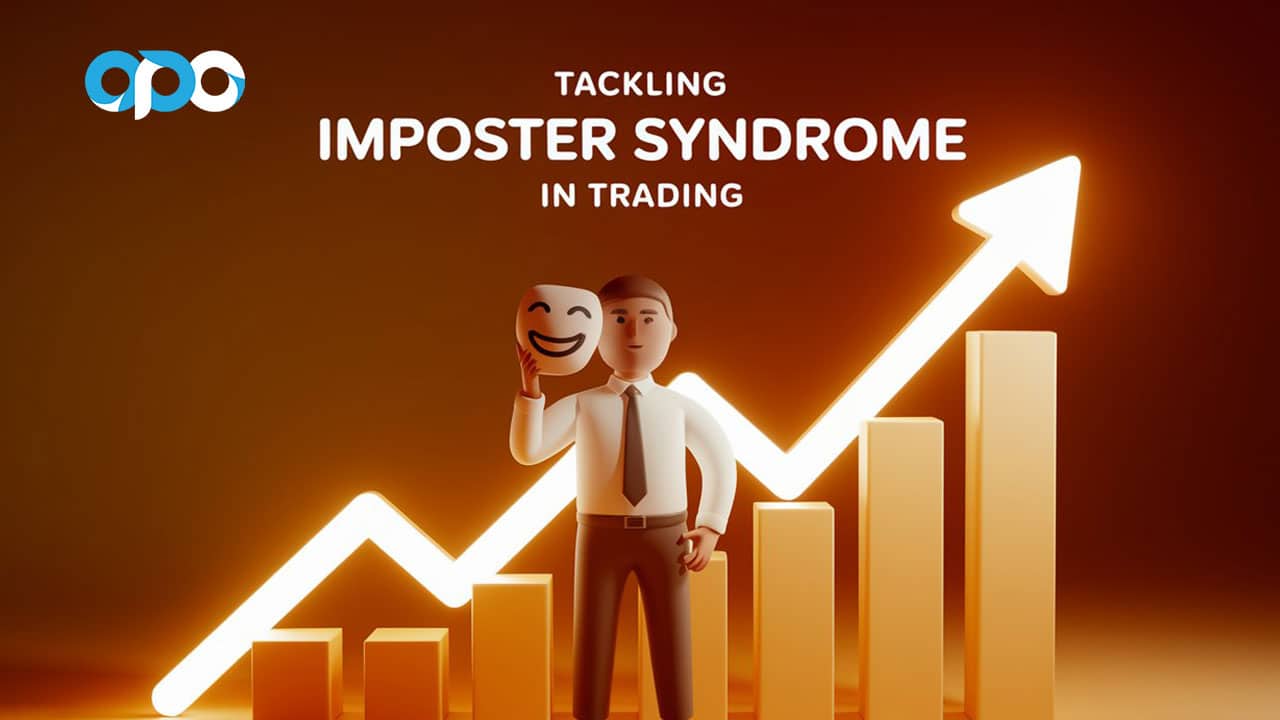
This article examines what this specific form of imposter syndrome looks like for traders and suggests practical methods for managing it and fostering true confidence. Dealing with imposter syndrome in trading is crucial for long-term success.
What is Imposter Syndrome?
Imposter syndrome goes beyond simply feeling unsure of yourself occasionally. It’s a deeper, more consistent feeling that you haven’t really earned your successes and are essentially fooling anyone who sees you as capable. Individuals experiencing this live with a persistent worry of being “exposed” as a fake, even when clear evidence—like profitable trades or steady account growth—shows they are competent. It’s a recognized psychological pattern, especially prevalent in high-stakes professions like trading, impacting both beginners and experienced individuals alike. Recognizing the signs is the first step towards managing imposter syndrome in trading.
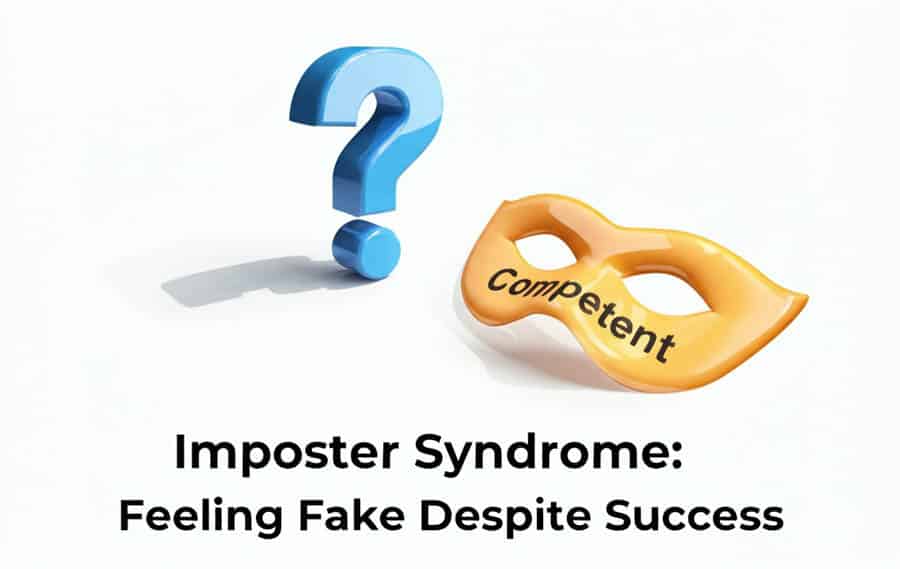
Key Symptoms and Thoughts
So, what does this feel like day-to-day? It often involves a constant sense that you’re not quite good enough, always measuring your internal struggles against the polished successes others display. There’s that underlying concern that you aren’t as skilled or intelligent as others believe. A major indicator is attributing your wins to chance, good timing, or thinking you somehow deceived others, while taking full personal responsibility for any losses, viewing them as proof of your inadequacy. This creates a cycle of anxiety and a feeling that you must work excessively hard just to maintain the facade.
Distinguishing from Healthy Self-Doubt
It’s perfectly normal to question yourself sometimes, particularly when learning a new skill or facing difficult situations like unpredictable market conditions. That’s healthy skepticism! But imposter syndrome lingers. It often feels illogical because it arises even when there’s tangible proof you’re performing well. It differs from general low self-esteem, which involves a more overall negative view of oneself. Imposter syndrome specifically targets your feelings about your accomplishments and abilities, making you feel like a fraud in that particular area, even if you feel confident in other parts of your life. The experience of imposter syndrome in trading can be particularly isolating.
Why Traders Feel Like Imposters
The world of trading, with its distinct pressures and inherent lack of certainty, often feels like fertile ground for self-doubt, making imposter syndrome for traders a significant challenge. Let’s explore why traders are particularly susceptible to these feelings.
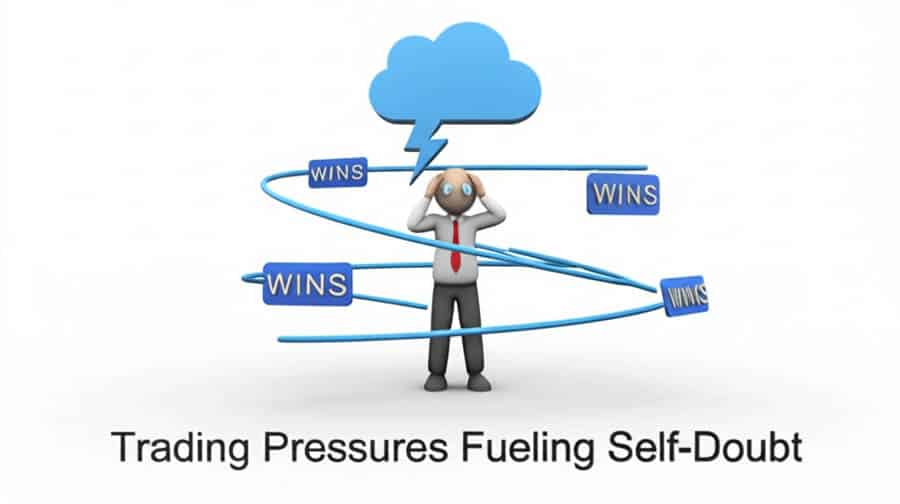
High-Pressure, Uncertain Environment
Trading operates under significant pressure. You need to make rapid decisions involving real capital, frequently in volatile markets. There are simply no guarantees; even the most well-researched strategies encounter losing periods due to market randomness. This constant uncertainty can easily make you feel like you lack true control and that any positive outcome must be accidental, directly feeding the narrative associated with imposter syndrome in trading.
Comparison Culture and Social Media
The trading sphere, particularly online, thrives on comparison. You encounter posts showcasing seemingly effortless large wins and luxurious lifestyles, often presented without the full context of risk or losses. Comparing your own complex reality—the learning curve, the unavoidable setbacks—to these curated snapshots can make you feel uniquely insufficient and intensify any existing feelings of being an imposter.
Perfectionism and Fear of Failure
Many individuals drawn to trading are motivated, analytical, and tend towards perfectionism. While motivation is beneficial, perfectionism can be seriously detrimental in trading. Why? Because experiencing losses is an unavoidable aspect of the activity. For someone already inclined to feel fraudulent, each loss isn’t merely a data point or a chance to learn; it feels like confirmation of their deepest fear: that they aren’t truly suited for trading. This fear of failure can become immobilizing, a common issue tied to imposter syndrome in trading.
The Loss-Doubt Cycle
Losses and self-doubt often reinforce each other in a negative feedback loop. Experiencing a series of losses (even if statistically expected for your strategy) can activate those imposter feelings. This doubt then affects your mental state, potentially causing hesitation on valid setups, impulsive “revenge trading” out of frustration, or abandoning your plan entirely. These actions frequently lead to further losses, which then seems to validate the internal “imposter” belief—confirming you were right all along. Understanding this dynamic is crucial when learning about imposter syndrome in trading.
How Imposter Syndrome Shows Up in Trading
Imposter syndrome in trading isn’t just a background worry; it actively influences your behavior and choices when you’re analyzing markets or placing orders. Identifying these signs within yourself is the necessary first step towards managing them effectively.
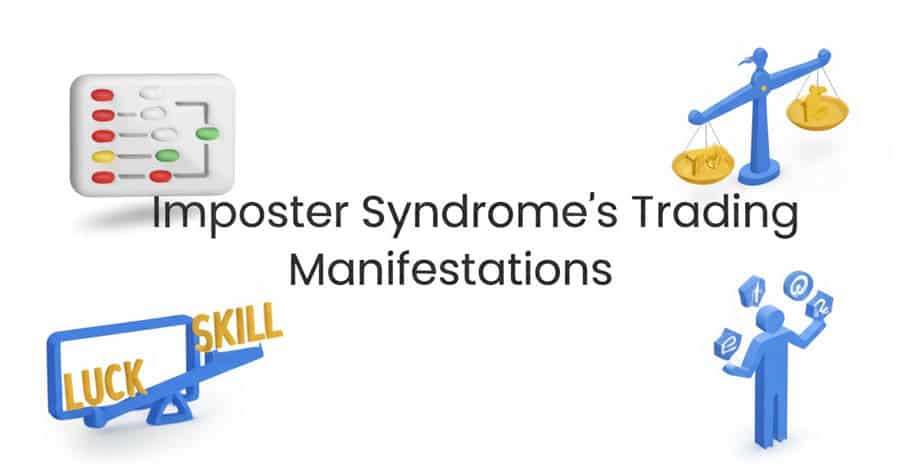
Doubting Proven Strategies
Consider having a trading strategy that you’ve thoroughly tested, documented, and seen positive results from. However, after experiencing a few losing trades, the voice of imposter syndrome suggests, “That strategy only worked previously because of luck.” This internal doubt can lead you to abandon a solid plan prematurely, constantly seeking an elusive “perfect” strategy instead of trusting the statistical edge you’ve identified.
Attributing Wins to Luck, Losses to Skill
This is a very typical pattern related to imposter syndrome. A successful trade? “Just luck,” or “The market handed it to me.” A losing trade? “See? I knew I wasn’t skilled enough,” or “My analysis was wrong; I failed.” This skewed perspective prevents objective learning from both successful and unsuccessful outcomes, hindering improvement for traders experiencing this.
Hesitation and Analysis Paralysis
The fear of making a mistake—of confirming that internal narrative calling you a fraud—can lead to excessive caution. You might analyze a potential trade setup endlessly, searching for an unattainable level of certainty, and consequently miss the opportunity entirely. This “analysis paralysis” stems directly from the lack of self-belief inherent in imposter syndrome.
Overcompensation: Overtrading or System Hopping
Conversely, some traders react by trying too hard to demonstrate their worth. This might appear as overtrading—taking numerous low-probability trades hoping to accumulate more “wins”—or constantly switching between different strategies (“system hopping”). They chase the belief that the next indicator or method will finally make them feel like a legitimate trader, rather than addressing the underlying feeling of inadequacy. This is a frequent reaction among those dealing with imposter syndrome in trading.
Burnout and Emotional Drain
Constantly battling self-doubt, seeking external approval, and fearing exposure is mentally draining. This ongoing stress significantly increases the likelihood of burnout. You might begin to feel exhausted, cynical about trading, and lose the enthusiasm you once felt. Effectively managing the imposter syndrome trading psychology is vital for long-term participation in the markets.
Psychological and Performance Impacts
The internal struggle associated with feeling like an imposter inevitably affects both your mental well-being and your trading performance. These effects might be subtle initially but can become more significant over time.
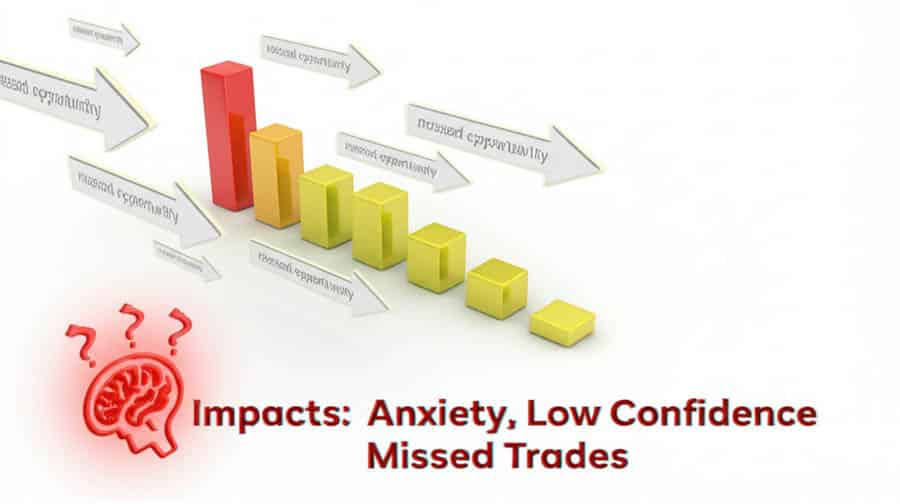
Increased Anxiety and Stress
Living with the persistent background thought of “I’m going to be discovered” generates substantial anxiety and stress. Every trading decision feels like a test not just of your strategy, but of your fundamental worth as a trader. This chronic stress negatively impacts not only your trading but can also affect your overall health and quality of life. It’s a heavy burden characteristic of imposter syndrome in trading.
Reduced Confidence and Missed Opportunities
Perhaps the most direct consequence on performance is diminished confidence. When self-belief wavers, you begin to second-guess clear trading signals, prematurely exit winning trades due to fear, or avoid taking potentially profitable setups altogether. These missed opportunities accumulate and can significantly reduce your overall profitability – a tangible cost of imposter syndrome in trading.
Perfectionism and Risk Avoidance
Although it seems contradictory in a profession involving risk, imposter syndrome can foster unhealthy perfectionism. The trader feels an intense pressure to never make an error, leading to avoidance of any situation perceived as having potential for failure. This might involve sticking to overly conservative strategies or failing to scale up positions when appropriate, thereby hindering growth.
Difficulty Accepting Positive Feedback
Does receiving praise for good analysis or a successful trade make you uncomfortable? If you’re dealing with imposter syndrome, your internal response might be dismissal (“They just don’t see the full picture,” or “They wouldn’t say that if they knew about my losses”). This makes it extremely difficult to internalize successes and build genuine, lasting confidence from your achievements.
Recognizing Imposter Syndrome in Yourself
Developing self-awareness regarding your thought patterns is essential. Do you frequently dismiss successful trades as mere luck? Do you criticize yourself harshly for losses while minimizing your victories? Noticing these tendencies is the critical first step in overcoming imposter syndrome in trading.
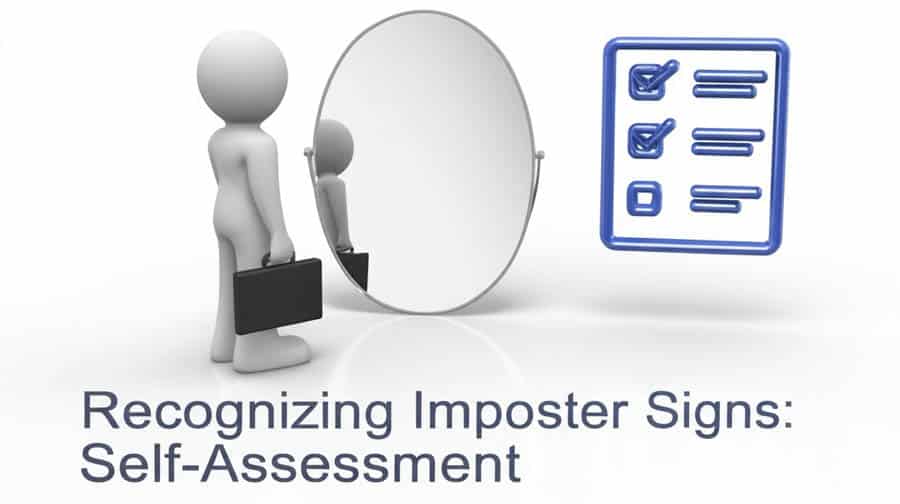
Common Signs and Self-Reflection
Take a moment for honest self-assessment:
- Do I often compare my trading results and process to others, particularly idealized portrayals online?
- Do I find it hard to feel genuinely pleased about a profitable period or a well-executed plan?
- Is my immediate thought “luck” when a trade resolves favorably?
- Do I experience significant anxiety before entering trades, fearing this might be the one that exposes my perceived incompetence?
- Do I tend to over-research or over-analyze to the point of inaction, missing trading opportunities?
- Do I feel I need to master every aspect of trading before I can consider myself a “real” trader?
- Does a single losing trade cause me to question my fundamental ability to trade successfully?
If several of these questions strike a chord, it’s highly likely that imposter syndrome is influencing your trading experience.
Trading-Specific Scenarios
Consider these common situations: You adhere strictly to your trading plan, manage risk effectively, and secure a profit. Instead of feeling satisfaction, your immediate reaction is, “Whew, got away with that one,” or “That was obvious; anyone could have spotted it.” Alternatively, perhaps you see a social media post from another trader highlighting a huge win (without context), and you immediately feel inadequate about your own consistent, smaller gains, thinking, “I’ll never achieve that level.” These are classic examples of imposter syndrome for traders in action.
Root Causes and Triggers
Imposter syndrome typically doesn’t arise from nowhere. It often develops from a combination of personal predispositions and environmental influences, which the trading world readily supplies.
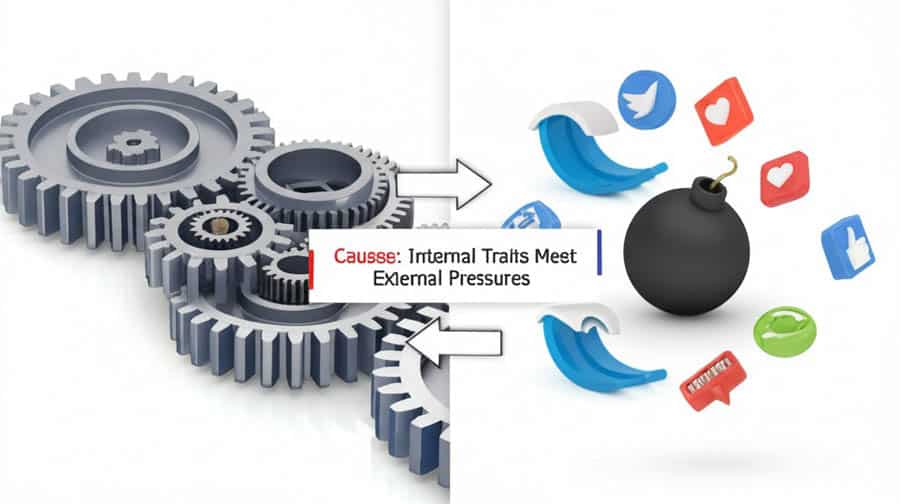
Internal Drivers
Certain personality characteristics can increase susceptibility. As noted, perfectionism is a significant factor. Upbringing can also contribute – perhaps growing up in a family that placed excessive importance on achievement, or where praise felt conditional. Some research suggests connections to underlying traits like anxiety. Understanding your personal history and tendencies can offer insight into why you might be prone to these feelings.
External Drivers
The trading environment itself acts as a powerful trigger. High market volatility can make outcomes seem random, reinforcing the “it’s just luck” narrative. The pressure within trading communities, whether explicit or unspoken, to consistently perform well can be intense. Furthermore, the ease of social comparison online, often presenting unrealistic portrayals of success, provides constant fuel for feelings of inadequacy. These external factors contribute significantly to the challenge of imposter syndrome in trading.
Self-Talk That Fuels the Fire
Pay close attention to your internal dialogue. Is it frequently harsh and self-critical? Thoughts common among those experiencing imposter syndrome include:
- “That outcome was purely luck.”
- “I managed to deceive them again.”
- “It’s inevitable that I’ll eventually fail significantly.”
- “Trading seems much easier for everyone else.”
- “If this trade results in a loss, it confirms I’m not suited for this.”
These thoughts aren’t objective evaluations; they are unhelpful thought patterns that perpetuate the feeling of being an imposter. Recognizing and actively challenging this negative self-talk is central to overcoming imposter syndrome in trading.
Strategies to Overcome Imposter Syndrome
Fortunately, feeling like an imposter doesn’t have to be a permanent state. By actively applying specific strategies, traders can learn to manage these feelings and develop authentic self-confidence. Addressing the imposter syndrome trading psychology requires deliberate and consistent effort, but positive change is achievable.
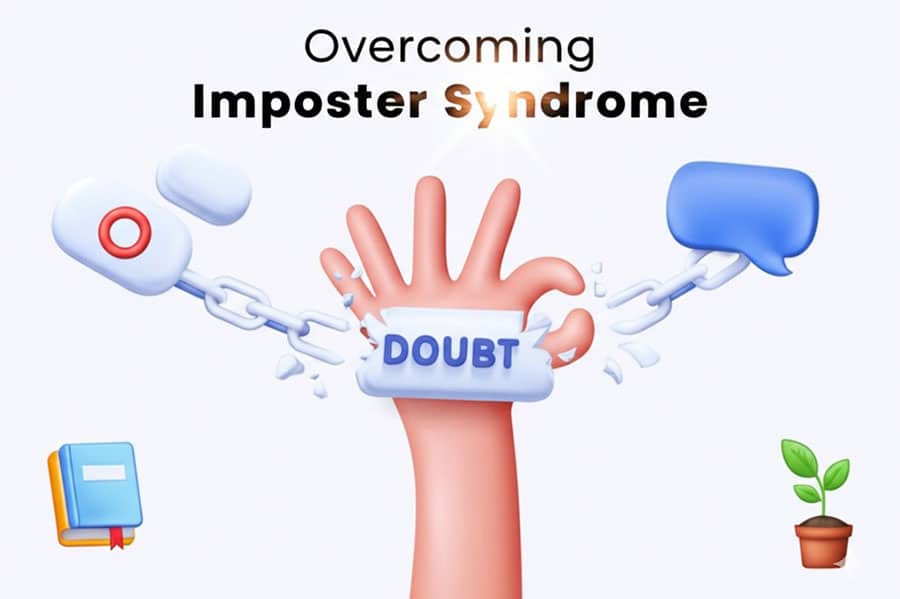
Acknowledge and Accept the Feeling
Attempting to suppress the feeling or pretend it doesn’t exist often proves ineffective. Instead, try acknowledging its presence: “Okay, I’m noticing feelings of imposter syndrome right now.” Simply labeling it as a recognized psychological pattern, rather than accepting it as an objective truth about your capabilities, can diminish its influence.
Challenge Negative Self-Talk
Actively question the rationality of those critical inner thoughts. When your mind insists, “You just got lucky,” counter it with factual evidence: “I identified a setup aligned with my tested strategy, managed risk according to my plan, and the trade unfolded based on that analysis.” Consider keeping a log of these negative thoughts and consciously reframing them based on objective reality.
Keep a Detailed Trading Journal
Your trading journal serves as your most powerful objective evidence against imposter feelings. Document not only the trades themselves but also your reasoning behind them, your adherence to your rules, and your emotional state at the time. Regularly reviewing this data highlights your skills, decision-making processes, and progress over time, making it significantly harder to attribute successes solely to chance. This practice is essential for tackling imposter syndrome in trading.
Redefine Failure as Learning
Adjust your perspective on losses and errors. In trading, they are unavoidable sources of information, not judgments of your worth. Frame each setback as an opportunity to learn—about market dynamics, your strategy’s nuances, or your psychological responses. This reframing lessens the fear associated with imperfection and turns challenges into catalysts for growth.
Stop the Comparison Game
Consciously reduce exposure to platforms or individuals that trigger unhelpful comparisons. Remind yourself frequently that you are typically seeing curated highlights, not the complete, often challenging, reality of others’ trading journeys. Concentrate on your own path, your specific plan, and your progress relative to your own past performance, not against others. This focus is key to overcoming imposter syndrome in trading.
Develop a Growth Mindset
Embrace the belief that trading abilities are not fixed but are developed through dedicated practice, learning, and persistent effort. Focus on the process of continuous improvement rather than solely on the outcome of individual trades. This mindset fosters resilience and reduces the pressure to achieve perfection immediately.
Seek Support: Mentors, Community, Professionals
Navigating these feelings doesn’t have to be a solitary endeavor. Discuss your experiences with trusted mentors, connect with fellow traders in a genuinely supportive community (focused on mutual growth, not just results), or consider consulting a therapist or coach specializing in performance psychology. Sharing your experience can normalize it, and external perspectives can effectively challenge distorted thinking patterns. Seeking support is a proactive step in managing imposter syndrome in trading.
Take Breaks and Manage Stress
Chronic stress and burnout significantly worsen feelings of imposter syndrome. Ensure you schedule regular breaks away from trading screens. Integrate stress-management practices into your routine—such as exercise, mindfulness meditation, engaging in hobbies unrelated to trading, and prioritizing sufficient sleep. A well-rested and balanced mind is naturally less prone to negative thought cycles.
Practical Tools and Exercises
Beyond adjusting your mindset, incorporating specific, regular exercises can help ground you and counteract those imposter feelings when they arise.
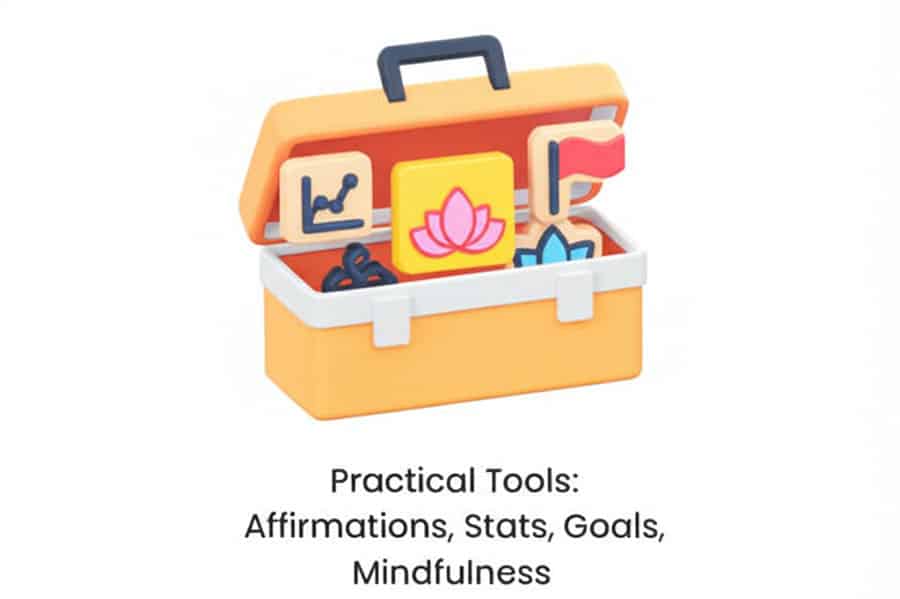
Daily Affirmations and Positive Self-Talk
While it might initially feel unnatural, starting your day by affirming your strengths and commitment can be beneficial. Focus on realistic, process-oriented affirmations, such as, “I am capable of following my trading rules today,” or “I view every trade as a learning opportunity.” Consciously practicing more constructive internal dialogue can gradually help reshape habitual negative thinking.
Review Objective Trading Statistics
Make it a routine to examine the hard data related to your trading. Analyze your performance metrics—win rate, average risk-to-reward ratio, equity curve progression—provided by your trading platform or detailed in your journal. Focusing on these objective measures offers concrete evidence of your progress and your strategy’s effectiveness, making it more difficult for subjective feelings of inadequacy to dominate after isolated setbacks.
Set Realistic Goals and Celebrate Small Wins
Instead of fixating solely on large outcome goals (like significant profit targets), break them down into smaller, achievable steps. Concentrate on process-oriented goals that are within your control, such as “I will adhere to my entry criteria for the next five trades,” or “I will conduct a thorough journal review this weekend.” When you meet these smaller objectives, consciously acknowledge and appreciate your accomplishment. Celebrating these incremental successes builds momentum and reinforces your sense of competence.
Mindfulness and Reset Techniques
Practice simple mindfulness techniques, even brief ones like focusing on your breath for a minute or two. This practice enhances your awareness of thoughts and emotions without getting immediately carried away by them. If you feel a wave of doubt or anxiety building, physically step away from your trading station for a few minutes, take several deep breaths, or engage in a quick physical activity like stretching. This physical reset can help reset your mental state before making further trading decisions.
When to Seek Professional Help
While self-help strategies and increased awareness are effective for many, there are times when imposter syndrome in trading becomes deeply ingrained or contributes to more significant mental health issues.
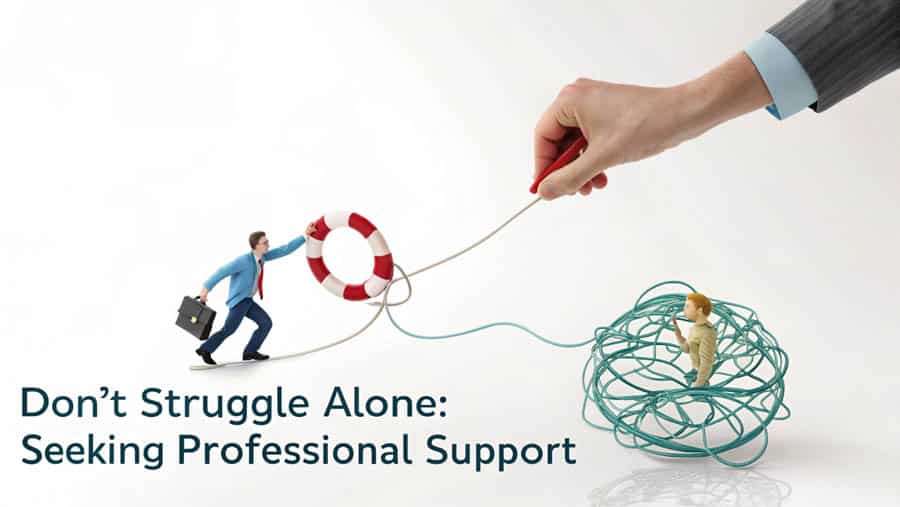
If feelings of inadequacy, pervasive anxiety, or crushing self-doubt become overwhelming, consistently interfere with your daily functioning (beyond just trading), or lead to symptoms indicative of severe anxiety or depression (such as persistent low mood, loss of interest in activities, marked changes in sleep patterns or appetite, feelings of hopelessness), it is very important to seek professional assistance. A qualified therapist, counselor, or psychologist, particularly one experienced in performance psychology or Cognitive Behavioral Therapy (CBT), can provide structured support, coping mechanisms, and appropriate treatment if needed.
Trading coaches with a strong background in psychology can also offer valuable guidance. Do not hesitate to utilize support groups or mental health resources if you find yourself significantly struggling with imposter syndrome in trading.
Opofinance: Trade with Confidence
Selecting an appropriate trading environment and utilizing effective tools can positively influence your trading psychology. Opofinance, regulated by ASIC, provides a robust platform designed to support trader growth and foster confidence.
- Advanced Trading Platforms: Access industry-standard platforms like MT4, MT5, and cTrader, alongside the intuitive OpoTrade platform, enabling you to use tools you are comfortable and proficient with.
- Innovative AI Tools: Utilize features such as the AI Market Analyzer for data-driven insights, the AI Coach for personalized feedback, and AI Support for prompt assistance, helping to reinforce your analytical process.
- Social & Prop Trading Options: Engage with a trading community through social trading features or explore pathways in proprietary trading, offering opportunities for learning and structured development.
- Secure & Flexible Transactions: Benefit from reliable and convenient deposit and withdrawal methods, including cryptocurrency options, with the advantage of zero transaction fees charged by Opofinance, simplifying fund management.

Explore a trading environment designed to support your development and confidence. Learn more about Opofinance today!
Conclusion: Embracing Your Trading Journey
Experiencing imposter syndrome in trading is a frequent obstacle, often intensified by the market’s inherent unpredictability and performance pressures. It’s crucial to remember that this feeling is a pattern of thought, not an accurate measure of your true abilities. It is entirely possible to manage imposter syndrome in trading effectively. By recognizing its signs, actively disputing negative self-perceptions, concentrating on your process and objective results, viewing setbacks as learning opportunities, and utilizing support systems, you can cultivate genuine, resilient confidence. Accept your trading journey as a path of continuous learning and personal growth. Building lasting confidence isn’t about eradicating all doubt, but about developing the ability to trade successfully despite it.
Key Takeaways
- Imposter Syndrome Defined: A persistent feeling of being a fraud, fearing exposure despite evidence of competence. Common in trading’s high-pressure environment. Recognizing imposter syndrome in trading is the first step.
- How it Manifests: Doubting effective strategies, attributing success to luck, hesitation leading to missed trades, overcompensating through excessive trading, potential burnout.
- Impacts: Heightened anxiety/stress, diminished confidence causing missed opportunities, unhealthy perfectionism, difficulty internalizing positive feedback.
- Recognition: Self-assess by noticing constant comparison, dismissal of wins, intense fear of failure, and analysis paralysis.
- Core Strategy: Acknowledge the feeling without judgment, challenge negative thoughts with facts, use your journal for objective evidence, reframe losses as valuable lessons.
- Helpful Tools: Practice positive self-talk, focus on objective statistics, set achievable process goals, use mindfulness and take breaks.
- Seek Support: Engaging with mentors, supportive communities, or professionals is a constructive approach to overcoming imposter syndrome in trading.
- Key Mindset: Prioritize growth, consistent effort, and self-compassion over unattainable perfection. Managing imposter syndrome in trading is an ongoing process.
Is imposter syndrome more common in new traders than experienced ones?
While it certainly affects new traders navigating the steep learning curve, imposter syndrome is surprisingly prevalent among experienced and even highly profitable traders. Success doesn’t automatically eliminate these feelings; sometimes, higher stakes or greater recognition can intensify the fear of being ‘found out.’ It might manifest differently, perhaps as immense pressure to maintain a flawless record, but the core feeling persists for many experiencing imposter syndrome in trading.
How can you tell the difference between genuine skill gaps and imposter syndrome?
Distinguishing requires honest self-evaluation, often aided by objective trading journal data. Genuine skill gaps typically reveal themselves through consistent, specific problems despite efforts to follow a plan (e.g., repeatedly poor entries, difficulty adhering to risk parameters). These can be addressed with targeted learning. Imposter syndrome often persists despite objective evidence of competence (like a positive equity curve or consistent strategy execution) and manifests as a more generalized feeling of fraudulence rather than specific, measurable weaknesses.
Can talking about imposter syndrome with other traders make it worse?
The outcome depends heavily on the environment. Sharing these vulnerable feelings within a supportive, non-judgmental group or with a trusted mentor can be incredibly validating and reduce feelings of isolation. However, in a highly competitive setting where traders focus on projecting constant success, discussing vulnerabilities might be counterproductive if met with dismissal or triggers further comparison. Choose your audience wisely when discussing imposter syndrome in trading; seek genuine support.



